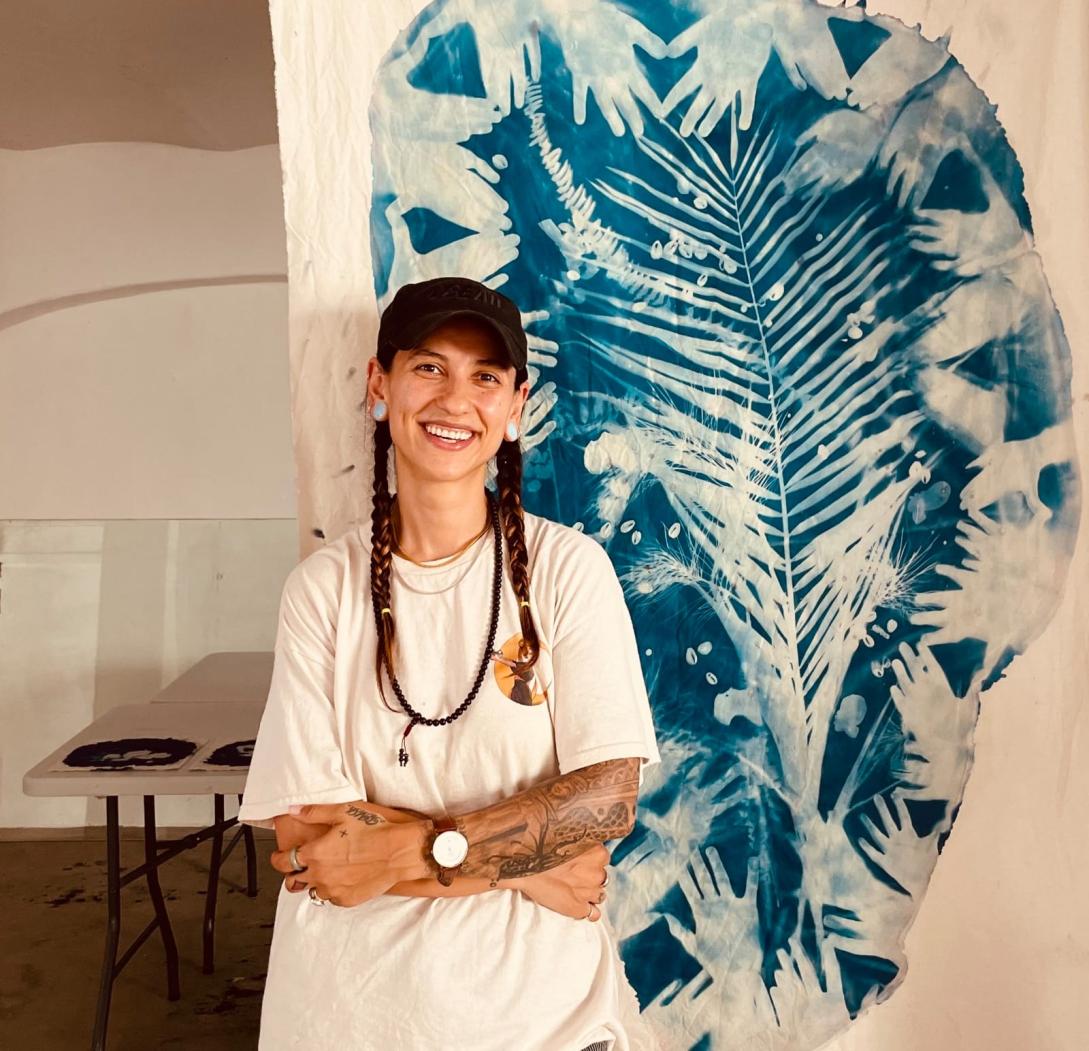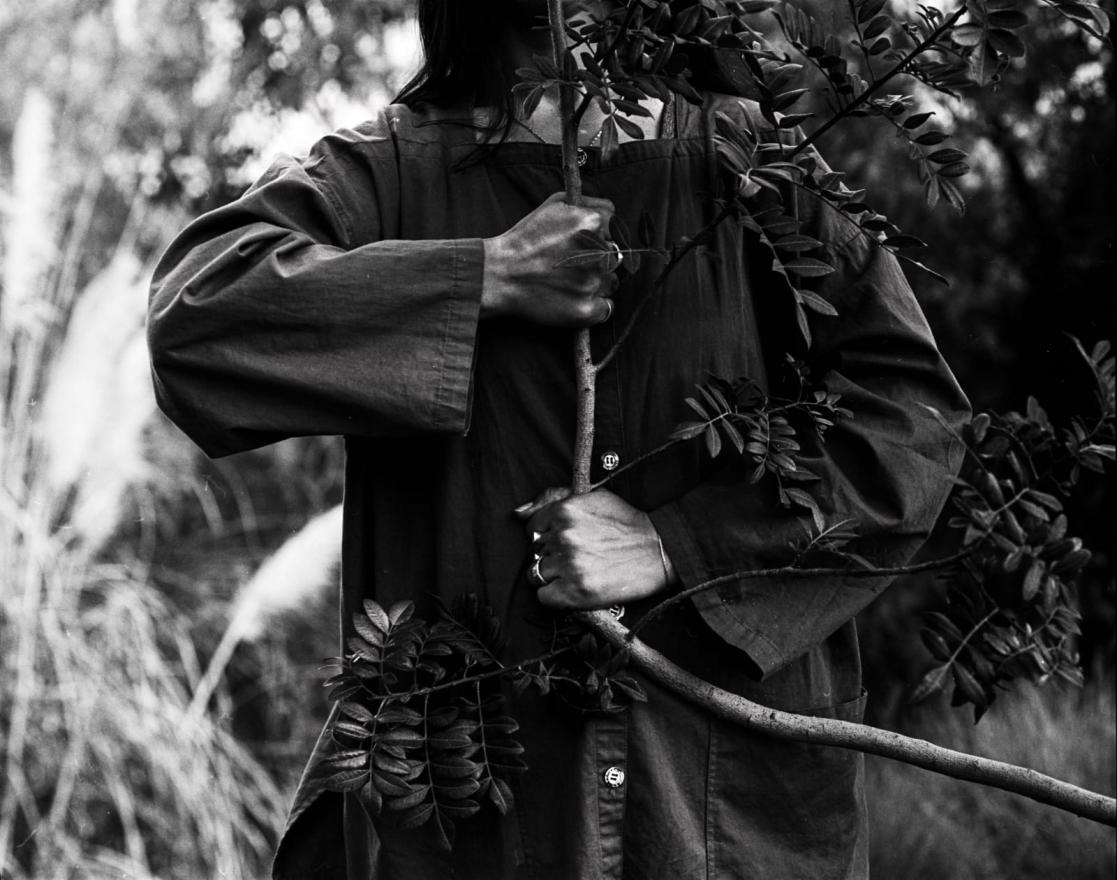Silvi Naçi: We need to make space for new narratives

In the early 1990s, after the fall of communism in Albania, Silvi Naçi’s father, was injured as an immigrant worker in Greece, paralyzed at 39, while their mother worked three jobs to move the family out of the country.
“When this tragedy hit my family, people in Albania referred to my father as half-of-a-man and looked at our family with so much pity. As an émigré to the States, all of my work, whether it be visual, organisational, text writing or community-based projects, advocates for the rights, protection and freedom of all humans”, says Silvi Naçi, an artist and writer working between Tirana and Los Angeles. Naçi’s work examines how the marginalised body is affected by an oppressive state and how processes of decolonization affect and reshape people, the body, language, and possibilities of gender identity. In 2018, Naçi co-founded Radical Sense, a feminist reading and translating group in Tirana producing and distributing two self-funded volumes of feminist and queer texts translated into Albanian for the first time.
Through different artworks, they explore the relationship between the individuals and the society seen in a different angle emphasising the dual role or meaning the same objects may have, depending on how we use them. “Untitled (hands)” is one of their most interesting works, consisting of a series of photographs. “Some of the themes I am exploring in my work are about gender, feminism, queer studies, dictatorship, silencing, erasure and femicide, which have been on the rise since I made this work. In one of the frames, my hands hold on an olive branch almost in a manner of containing, withholding a moment of peace. I am thinking about moments of tension and duality in how we use our hands – to care or to destroy”, they said in an interview with Simon Kurti for the occasion of the exhibition “The Event of a Thread” at the National Gallery in Prishtina.

EU Delegation to Albania
As we showcase pride heroes, Naçi mentions the need to create spaces for understanding while listening to one another and making it possible for all people, no matter their gender expression and sexuality, to have a free and fulfilling life. “This requires intentional empathy building, mutual understanding and care for all people. I think it's important to note that I am coming in and out of Albania, I live in the space in between, in the translation space, in double-consciousness, so my perspective differs from friends of mine who are living in Albania and resisting and advocating for their lives on a daily basis - those are my heroes”, they say.
In addition, and having a broader view, Naçi sees a lot of work being done by their friends and collaborators to raise awareness about LGBTQIA+, Trans rights and issues with a hope of change. “I also see resistance to change while I see radical queer love happening. I think what's important is that we need to have open conversations and not be silenced – to build state-funded, safe spaces for queer youth and to educate elders who are still frozen in Hoxha’s ideology. In order to progress we need to make space for new narratives to emerge instead of repeating old patterns that are not serving us. If we open our hearts and minds, we might actually learn new ways of being together that are grounded in a foundation of love, care, and liberation”, they highlight.
Everyone has their own journey to discover, understand and accept themselves. For Silvi Naçi, it came when they went to therapy recommended after an invasive surgery dealing with chronic pain. “It was in therapy that I started to understand my personal experience, being a young queer immigrant, trying to assimilate in Western culture. It began by being curious and open about finding my own way of self-acceptance and love, which also allowed me to extend care to my communities and create safe spaces for others to explore their own experiences through community-based art making and organising”, Naçi says.
One of their works, entitled “{Don’t} Touch My Flower, 2019” was created during an art residency in North Carolina the summer Silvi Naçi came out to their family, which they describe as was a very tender, vulnerable and precious time. Describing “Qilim”, another artwork, Naçi says that “I see the works as building a queer futuristic archive where boundaries are subverted and undone to be inclusive of marginalised narratives”.
For Naçi, making art has always been an act of survival and making space for different perspectives and narratives to emerge heal and care while including marginalized narratives that hold wisdom. “This is where queer futurity blossoms and opens new horizons of possibility. Art has also allowed me to imagine a futurity where the histories and practices of those in the margins are legitimised and made visible, and to use that visibility to raise awareness of the issues of social justice, identity, gender, and race in the LGBTQIA+ community, and in demonstrating the power of collaboration and empathy”, they note.
Silvi Naçi still remembers their first psychology class in an undergraduate school when one of the classmates started airing family issues in class as part of the discussion. Coming from an Albanian family where you do not utter your family matters to the public, they were stunned and enraged. “How could they, I thought. I soon realised that those were tactics of control, of subordination, shame, and fear mongering to keep me within a culture of fear and separation”, Silvi Naçi recalls after working with fear as material for imagining new futures of care.





